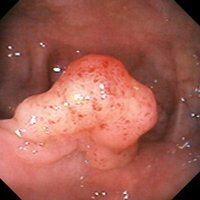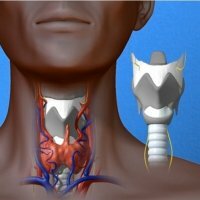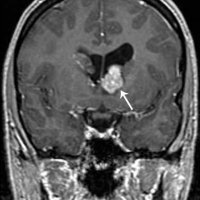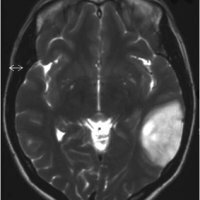Sigmoid cancer

Oncology of the sigmoid colon is considered an inconspicuous killer. And why? Anatomy will help to understand this. Part of the large intestine is the sigmoid colon, which passes into the rectum. The gut is anatomically similar to the Latin letter S, just as if bending over on its side.
The intestine is closed tightly fixing it with the adjacent intestines of the peritoneum. Here, the formation of fecal masses occurs, so it is important to supply with nutrition components that stimulate peristalsis. If this does not happen, stool masses are delayed, press on the walls of the intestines, disrupt the blood circulation, and this in itself worsens peristalsis.
Lack of intestine is a risk of epithelial growth - in its place, the formation of an adenomatous polyp, which easily transforms into a pre-cancer state, and then into an adenocarcinoma, can begin. Cancer of the intestine develops slowly, without visible manifestations, the reason for this is the peculiarity of the blood circulation. Peritoneum symptoms of symptoms are drowned - pains start to appear at the late stage, and the disturbed chair does not cause due attention.
Symptoms of
Symptoms of cancer are very dim. Doctors call these symptoms monotonous, nonspecific and inexpressive - they do not suggest thoughts about the development of oncopathology.
This disease manifests itself in abdominal pain, in stool disorders - they can disappear as suddenly as they appeared. The person weakens, quickly becomes tired, pale, loses appetite and taste preferences, grows thin. Later, the presence of blood appears in the stool, the liver is enlarged, the skin turns yellow. Symptom of chronic intoxication is ascites. At the last stage of the development of intestinal obstruction, bleeding and intestinal abscesses.
Diagnosis and treatment
Diagnosis of cancer is not difficult - it can be examined using the finger method in the rectum. If you investigate in a timely manner, you can easily identify a tumor conglomerate and save life.
Alertness is not a reinsurance, especially when talking about the category of people at risk of developing oncology. If there are small, insignificant complaints, it is necessary to perform a sigmoidoscopy, irrigoscopy, ultrasound of the abdominal cavity, a colonoscopy. Conducting a colonoscopy, you need a biopsy to examine the tissue histologically.
Treatment of oncology of the colon is based on an operation intervention. The operation is desirable immediately after the diagnosis is confirmed, so that the disease does not start metastasizing. The usual technique is resection of the intestine, the formation of an anastomosis in it. This operation is carried out and the method of laparoscopy. If these actions are not possible, spend colostomy. Formed the same stoma is better in the subsequent to operate and then to sew. Tactics are chosen individually, taking into account the course of the disease and the complications.
If the operation does not solve the existing problem, a palliative operation is applied, i.e. Creation of a bypass anastomosis, forming a fistula for feces passage - anus of artificial origin.
Chemotherapy is not considered effective in treating the ancology of this organ - a malignant conglomerate can not be irradiated, but it harms the rest of the healthy organs. In case of inoperability, chemotherapy can be used as a palliative method, but it does not solve this problem. After chemotherapy, there is some slowdown in the growth of the tumor, but it does not disappear. It is worth noting that exposure can give unforeseen results, and therefore it should be used with caution, and only when it is necessary.
To influence the new education as much as possible, combined treatment is used, i.e. Chemoradiotherapy. After several courses, the tumor decreases in size, sometimes it becomes even not visible to the diagnostic equipment. After exposure to chemo-radiation, the best result of the operation is noted. But, despite this, it is usually impossible to improve the significantly created situation. Usually, if the cancerous tumor decreases, already there are metastases that have not manifested themselves to the end. After the operation, you should follow a diet, since the intestine after the operation will not tolerate a rough, irritating stomach, food.



